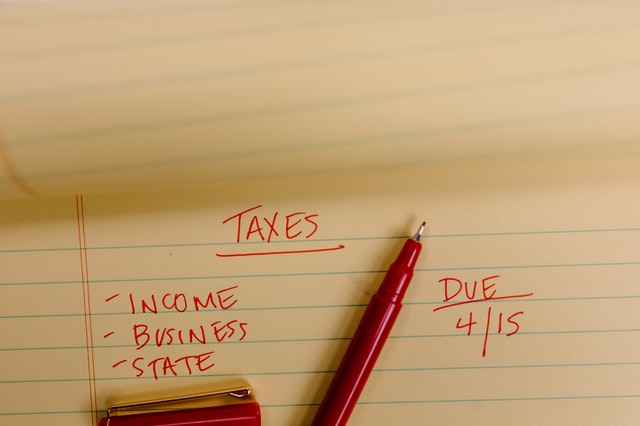Gusto man natin o hindi, taxes are a part of running a successful online business. That being said, we don’t blame you if you wince every time you see your annual and quarterly tax dues. Masakit naman kasi talaga.
Fortunately, there are ways you can legally minimize your tax payments, especially if your business happens to be classified as an MSME: a business with assets less than ₱100 million and less than 200 employees.
To be specific, there are quite a number of LGU and national tax laws that can help minimize your ecommerce tax burden, and each one can give you some potentially significant tax exemptions. You may even reap the benefits of several laws at once and save some serious money — if you know how these laws work and how to take advantage of them, that is.

So, if you’re looking for ways to keep as much of your hard-earned profit as possible while also staying on the BIR’s good side, read on for some tax tipid hits.
But before we continue, you may wanna check first Your Tax Obligations as an Online Seller
The TRAIN Law
Under the TRAIN law, if your business makes less than ₱250,000 a year, you’re exempted from paying personal income tax. You do, however, still need to file your annual income tax return, or you risk being penalized with late fines.
There’s another perk you can take advantage of thanks to the TRAIN law. As an MSME, instead of paying income and percentage tax, you have the option to pay a simpler, flat tax of 8% on gross sales and receipts.
Depending on the nature of your business, you may just pay less in taxes each year. But if your business has big operating expenses such as payroll, inventory, etc., you might be better off paying the graduated income tax instead.

#NinjaTip: To figure out which tax rate option is most optimal for your business, it’s best to consult a tax professional for clarification. They can give you a clearer breakdown of what you can expect to pay so you can better compare both options.
Republic Act No. 9178: The BMBE Law
Signed into law in 2002, the Barangay Micro Business Enterprise or BMBE Law provides MSMEs with many benefits to help them scale up their businesses, and that includes tax exemption.
If your business has no more than ₱3 million in total asset value and is accredited as a BMBE, you won’t be required to pay income taxes that arise from your operating expenses.
However, you’ll still need to pay for transaction taxes, including but not limited to value-added tax (VAT) and percentage taxes. Additionally, you still need to file your income tax returns on time to avoid hefty late payment penalties.
How to apply for BMBE
- Fill out a copy of the BMBE application form.
- Bring the BMBE application form and a copy of your DTI Business Name Registration Certificate to your nearest DTI Negosyo Center.
- Wait for the DTI Negosyo Center to finish evaluating your application. This process can take up to fifteen days. If there are no issues with your application, then it’s considered automatically approved.
- The DTI Negosyo Center will issue your MSME’s BMBE Certificate of Authority.
5, Bring your BMBE Certificate of Authority to your BIR Revenue District Office to register for tax exemption.
Republic Act No. 11534: The Corporate Recovery and Tax Incentives for Enterprises (CREATE) Act
Signed into law on March 26, 2021, the CREATE Act is the second package of the Comprehensive Tax Reform Program. It was made to provide fiscal relief and incentives to local and international businesses within the Philippines that were negatively impacted by the effects of the Covid-19 pandemic.
Thanks to this law, as of July 1, 2020, MSMEs with net taxable income below ₱5 million and total assets below ₱100 million (excluding land) can enjoy a reduced CIT rate of 20% down from 30%. Additionally, the minimum CIT (MCIT) rate is reduced from 2% to 1% and Percentage Tax is reduced from 3% to 1% starting July 1, 2020, until June 20, 2023.
Businesses can also be granted an Income Tax Holiday from four to seven years, followed by a Special Corporate Income Tax Rate (SCIT) of 5% for 10 years. Registered enterprises are also entitled to duty exemption on imported raw materials, spare parts, accessories or capital equipment.

Republic Act No. 11494: The Bayanihan II Act
The Bayanihan II Act was signed into law to help local businesses recover from the global pandemic’s impact on the national economy. Under this law, businesses can carry over their net operating losses for the financial years 2020 and 2021 as deductible expenses for the next five (instead of three) taxable years.
If your business was negatively affected by Covid-19, this tax exemption can help you get back on your feet, so make sure to take advantage of it.
#NinjaTip: If your business dabbles in personal care or health products, good news: the Bayanihan II Act exempts any imports of these goods for commercial purposes from customs duties, VAT, and excise tax.
The best part? You don’t necessarily have to be selling personal protective equipment (PPE) like masks and gloves to qualify. Everyday personal hygiene items like alcohol, detergent, hand soap, sanitizers and tissue all count! The same goes for cleaning materials, vitamins and common over-the-counter medicines.
Other ways to minimize your business tax: tax deductions
Donate to the national government or a charitable organization
You might be thinking: teka lang, gusto ko nga makatipid, e. Hindi ba dagdag gastos kung mag-donate kami?
What if we told you that, under Section 34 of the tax code, your MSME can file charitable contributions as deductible expenses? That’s right: your donations to a good cause may just help you trim your business taxes in part or in full.
Who knew that generosity can come with some practical perks? Nakabawas ka na ng tax, nakatulong ka pa sa iba.
Just don’t forget that if your donation is more than ₱250,000 or isn’t tax-exempt under Section 101(A) of the TRAIN law, you still have to pay a fixed 6% donor’s tax within 30 days of making the said contribution.
#NinjaTip: Take note that, aside from certain types of donations to the government, only donations to organizations that are fully accredited by the Philippine Council for Non-Government Organizations (NGO) Certification, Inc. (PCNC) are considered fully deductible.
So, before you send off that check or initiate that deposit, ask to see the receiving organization’s valid and active Certificate of Donee. Otherwise, you might end up having to pay higher taxes than you planned for and being penalized by the BIR due to mispayment. Yikes!
Carefully track and claim your business’s allowable deductions
As the name implies, an allowable deduction is any expense that your business must make to earn income.
That said, you can’t just start recording random expenses and try to pass them off as allowable deductions. To be considered an allowable deduction, the expense should:
- Be related to your business
- Must be considered a reasonable amount
- Complies with withholding tax requirements
- Supported by documents
- Not contrary to law
#NinjaTip: Nahihirapan ka ba magcompute o magtrack ng gastos? You may want to consider hiring an accountant to take care of everything for you.
Alternatively, you can also sign up for an online subscription service like Taxumo or JuanTax. All you have to do is input your expenses, and sila na bahala mag-compute ng taxes, deductions and all.
Take advantage of a tax exemption or two

Feeling intimidated by all the legalese above? If na-nosebleed ka sa dami ng technical lingo and numbers, there’s no shame in consulting a tax professional about these matters. When it comes to paying our dues to the BIR, mas mabuti nang sigurado.
At the end of the day, if you own an MSME, sayang naman if you don’t grab the savings opportunities offered by these tax laws. It may take some time to go through all the technical details, but once you’ve accomplished the necessary steps, sulit naman ang pagod at effort.
So, if you haven’t already, make sure to look into the above tax exemption laws ASAP para hindi sayang ang savings. Your business’s bank account will thank you for it!
Featured image from Pixabay






